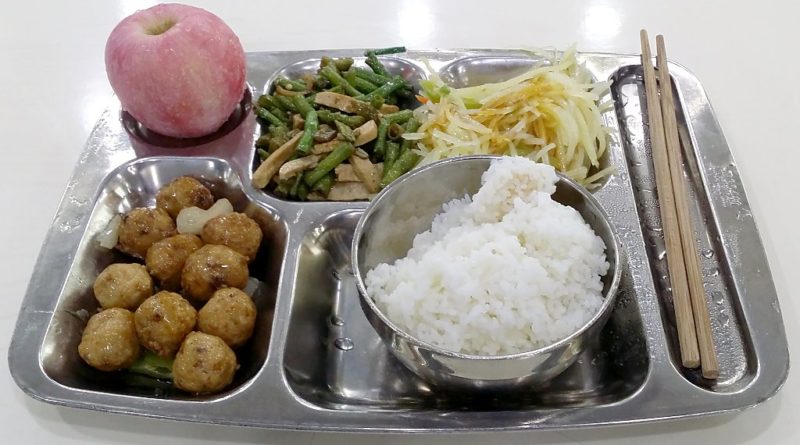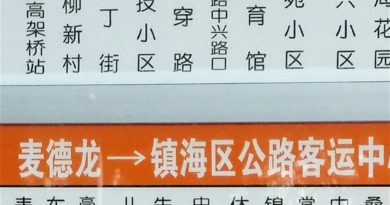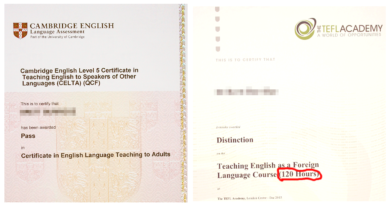The Perks and Benefits of Teaching English at a Chinese University
In this post I’ll run through the perks and financial benefits of teaching English in a Chinese university.
Chinese university jobs aren’t the highest paid teaching positions in China. For better salaries you need to teach young kids, or teach at international schools. However, University jobs offer lower teaching workloads, less stress and more vacation time. If quality of life is what you’re seeking, then read on…
What Salaries Are On Offer?
Teaching salaries vary in Chinese universities, but you’ll generally make at least 6000 RMB a month.
How to earn more?
You can earn more by working in East China or one of the other areas with low unemployment and higher salaries generally. But on the downside living costs will be higher here as well.
Bear in mind that Shanghai and Shenzhen are particularly expensive cities to live in.
You will generally be offered a higher salary if you have a Masters degree or a Doctorate. I have a Doctorate degree which gives me an extra 1000 RMB a month. A Masters degree is worth an extra 500 RMB a month.
Schools will often have retention bonuses. If you decide you like your university and want to stay another year, then that can be worth 500 RMB a month in the second year.
My university has a performance bonus that depends on feedback from your students. This can be quite lucrative (as much as 2000 RMB a month).
Finally salary depends on working hours. 2 hours extra a week nets you an extra 500 RMB a month. More on working hours later in this post.
Remember to negotiate on salary when offered a job – you might be able to get a little more out of them. Especially if you already have teaching experience.
Other Financial Benefits… And Some Unwelcome Costs
Teaching jobs generally come with a free apartment. Make sure yours does!
If you’re interested in learning Mandarin then you might get offered free classes. These will generally depend on whether they overlap with your own teaching schedule. It’s worth going to some classes, if only to see how Chinese teachers do their lessons.
You should get your flight to and from your home country paid for. Some universities will buy you a flight, or pay you the exact cost. Others will just give you an allowance that should hopefully pay for the journey.
Remember to use Skyscanner to find the cheapest day to fly, and then shop around to get the absolute lowest price for your ticket. Especially if you get a flat rate travel allowance – that way you can keep the surplus.
You should find that universities will pay your visa costs in China. But they won’t always pay for your visa application back in your home country. That kind of sucks, given that it costs 195 GBP in the UK to apply for a China visa via a company like China Visa Direct.
If you need to get your bachelors degree and teaching certificate notarised then you’ll have to pay for that. The good news is that this only needs to be done once. The bad news is that it’s expensive. Edward Young charged me 350 GBP but they were very fast and did all the legalisation for me.
You’ll also need a police check but thankfully this isn’t too expensive.
If you don’t live in London or the surrounding counties then you might also find that it costs even more money to go and get fingerprinted as part of the visa process. Fortunately I lived within walking distance of the Chinese consulate, but you’re unlikely to be in such a good geographical location.
Warning – How to Screw Things Up!
Make sure you read your contract. It should always be translated into English for you. While you might not understand Chinese, make sure the English version looks vaguely similar in terms of paragraph numbers.
Universities will fire teachers for three main reasons: performance, excessive drinking or womanising.
It’s no secret that a lot of teachers in China aren’t that good at their jobs. So universities will fire teachers, or at the very least not renew their contracts at the end of the year.
Alcohol is absurdely cheap in China, so if you like a drink or two it’s essential not to let it affect your work.
Unlike in the West, Chinese universities tend to be virtually alcohol free zones. It’s not served at events. There are no bars on campus. Not many students actually drink. So while you can drink in your room, just be careful not to be seen intoxicated.
Finally – this usually applies to younger guys – be careful if having relationships with students. In fact many contracts will now specifically prohibit this, especially if the school has had problems in the past. Generally speaking, you should keep things on a professional level within your school. If you want to date locals, then find somebody with no connection to your school.
One other thing to be careful of is offering private tuition to students. While this is perfectly legal on your work visa, you might find that problems arise if you start tutoring some of your own students. This can cause accusations of favouritism, and if your students turn against you, you’ll find it very hard to keep your contract.
My tip here is to look for private tuition gigs outside of your university, if you do them at all.
The Free Apartment – is it Any Good?
Universities generally give you a free apartment as part of the deal. This is a wonderful perk in that by living a frugal life you can effectively save most of your salary while working in China!
On the downside, the apartment can vary. It’s hard to be too general here as what you get offered will depend on what university you decide to join.
I am lucky in that my university’s campus is only two years old. The foreign teachers live in a purpose built apartment block.
Our rooms are quite big. In fact my bathroom is actually bigger than my Pimlico apartment I used to live in when I worked in Central London!!!
I also have a big double bed, a flatscreen TV, a desk, various chairs, lots of cupboard space and a cooking area.
The bathroom has a Western style toilet a decent shower and even a washing machine.
There are some communual areas in the building. There are some clothes driers and also a communal kitchen. I tend not to use this except for when I need to use the fan assisted ovens for cooking pizzas or baked potatoes.
I can also cook in my room. The school provided me with a hot plate and a kind of microwave thing. The microwave thing took some experimentation and a lot of ruined food before I got it working (of course the instructions are only in Chinese). The hot plate is great for cooking pasta or soup.
There is also an air conditioning unit which also serves as a heater in winter.
If your school is older then you might get some or all of that, although I’m doubtful you’d get a flatscreen TV.
On the downside, air conditioners can be quite noisy. And my room still fills up with mosquitoes, even with mosquito grills on the windows. Finally, China is one of the noisiest countries on earth, so remember to take ear-plugs.
By the way some universities might give you an office, or at least a desk in a shared office. I got offered one, but I’ve never worked in there. It would feel too much like going back to my 9 – 5 job.
What’s the Teaching Load Like?
Teaching workloads vary in Chinese universities. It tends to depend on how prestigious the university is, and how many foreign teachers are there.
Generally you’ll be expected to work for between 10 and 22 hours a week. These are teaching hours. In practice each 2 hour slot means you’ll teach for 45 minutes, the students have a 10 minute break then you’ll have to entertain them for another 45 minutes. So 90 minutes work in total.
Bear in mind however that university campuses can be BIG. It takes me nearly 15 minutes to walk from my apartment to one of my classrooms!
As I said teaching workload depends primarily on how prestigious a university is. If it is famous and well known, then you’ll teach for less hours. Strange but true.
I did 18 hours in my first semester at my up and coming technical university. Next year they want me to do 22 hours!
The good news is that I do get paid partly on teaching hours. This is something to check in your contract!
The other thing to check is how many lessons you can duplicate through the week. This has a huge impact on your preparation time. For example, I taught 4 classes a week in the Business English department. However, they were 4 different cohorts of the same degree stream. So I could teach the same lesson 4 times a week.
The killer as far as preparation time is if you have the same cohort of students for more than once a week. One of my peers sees one group of students three times a week. This can be tough as you’ll really struggle to come up with enough new material for them, and you’ll have to keep switching lesson types in order to prevent them getting bored.
To cut your preparation time you can do things like setting groupwork homework, and then review the homework presentations in class. But do this too much and the students will complain about getting too much homework!
Exams and tests are also pretty easy to prepare.
Finally once you’ve done your first year’s teaching, then subsequent years become much easier as you can reuse your favourite lesson plans.
Sometimes you’ll be asked to go to meetings, judge talent competitions or generally just be seen at university events.
Try to push to get paid for these, or you’ll end up getting taken advantage of.
Cheap Canteen Meals
OK so most contracts specify that you get cheap food on campus. However, not many foreign teachers tend to take up this offer.
It’s worth checking it out though, because campus food tends to be very cheap indeed. For example, for 2RMB I can get this in my school’s canteen:

In our school you get a bowl of rice, one meat or fish dish and two vegetable dishes. You can get to choose which dishes you want (just point and nod your head when the server hovers over the dish you like the look of).
How much is 2 RMB? For comparison in the school supermarket a 330ml can of Pepsi is 2.5 RMB. The other restaurants on campus charge around 12 RMB for a meal. Further afield, it’s 45 RMB for a burger and fries at Carl’s Jr.
On the downside the food is rather plain and bland, reminiscent of school dinners back home in the UK. But there are plenty of healthy options available, such as beansprouts and boiled veggies.
If you do the math then it’s probably worthwhile going to the canteen for the fruit alone!
If you do more math then over the course of the semester you could save a tremendous amount of your salary by avoiding more expensive food options.
By the way, some schools might lure you into a contract with talk of Western food canteens on campus. But the last place that promised me that didn’t actually have any Western food available in their canteens.
So what are the other options?
Most universities have a string of local restaurants either in the school or outside the gates. These typically charge a minimum of 12 RMB for a meal. Most of these restaurants are aimed at the (usually) poor Chinese students who don’t have a lot of money. So the food can be basic and food poisoning is quite a frequent occurrence.
If you teach at a larger university that has more foreign students then it’s more likely you’ll find some Western style restaurants in or near the school. When I went to a university in Guangzhou there were a few Korean style restaurants outside the school gates. There was a pretty good pizza restaurant as well.
If you get a teaching job that comes with a free apartment then you should also be able to cook in your room. I tend to cook a lot of Italian food, simply because pasta and tomato sauces are the most easily found Western ingredients in China.

I try and cook a lot of soup, especially if the weather is hot and humid.
Fruit is very easy to find in China although it’s not particularly cheap. The quality is good though.
Vegetables can be somewhat harder to find in the immediate vicinity of your school, especially if the campus is out of town. This is because Chinese students aren’t generally allowed to cook in their room, so there’s not much demand for vegetable shops.

The good news is that Chinese cities tend to have a few Western style supermarkets. Tesco, Vanguard, Auchan, Metro, Walmart and Carrefour are all worth seeking out as they have a wide selection of cooking ingredients. They’ll also have some foreign goods that you might want to stock up on as well.
Cooking can be difficult here though, not least because finding basic things like tin openers and pizza trays can turn into a major shopping hunt.
Holidays
Now here’s the great part. You get loads of vacation time!
Under the Chinese education system there are two teaching semesters a year. The first one runs from September to January. The second runs from March to June.
July and August are unpaid, and usually your China visa will expire at the end of June. So you’ll need to do and go somewhere else even if you decide to renew for another year.
The good news is that if you’re from a Western country then July and August are peak periods of demand for ESL teachers back home. You’ll easily find work teaching in Summer schools in the UK or North America. And this work can be very well paid.
Alternatively just chill out back home with your family. Or use the time off to go backpacking throughout SE Asia. July and August are great months for visiting Thailand for example. It’s less crowded and the weather is hot, hot, hot.
You also get a paid month’s vacation for Chinese New Year. This runs between the two semesters. The actual timing of Chinese New Year depends on the lunar calendar, but it’s usually in February. This can be a great time to go exploring China and the rest of Asia. But just bear in mind that Japan, South Korea and most of China can be bitterly cold at this time of yeaer.
Most universities will also wind down their teaching calendar at the end of December. As a result you’ll find you probably have 2 months free. But remember to check with your school before you book any foreign travel plans. As with everything in China, your teaching schedule will be subject to last minute changes and alterations.
One tip I’ll give you is to make sure you plan your end of term exam well in advance. Usually your bosses will be happy with you going away once you’ve given your students a final exam and collated the marks.
Note: most schools in China will frown upon you taking time off at Christmas. You might get a week off at most. But if you want to fly back home to be with your family then bear in mind it’s peak season for flight costs. Also long haul flights in the major winter colds season are not fun at all.
Finally China has a few public holidays dotted throughout the year. You’ll usually get time off for these. Some places will insist you do make-up classes. This can involve you having to teach on weekends. Luckily my current school doesn’t bother with them. But it kind of ruins the whole point of having holidays in the first place!
My school also had a few non-teaching days. Freshmen do a couple of weeks’ military training when they first arrive at the school, so there won’t be classes on those weeks. That’s a bonus if you have a lot of classes for freshmen.
Schools generally have a 2 or 3 day sports day as well. Again you won’t be expected to work on these days, but you might get roped into playing some silly team games.
So that’s an overview of the perks and benefits you can expect to receive while teaching English at a university in China. Do you like the sound of it? Would you consider coming to China and teaching English?
If you have any questions then leave a comment below and I’ll do my best to answer them.




Hi Brett, this is great article. My name is Junhui, and I work for ISAC Teach in China Program to recruit teachers to teacher at Chinese universities. I wonder if we can re-post your article in our website, and we will put a reference link back to your site? Let me know. Thanks and have a good one.
Best regards,
– Junhui